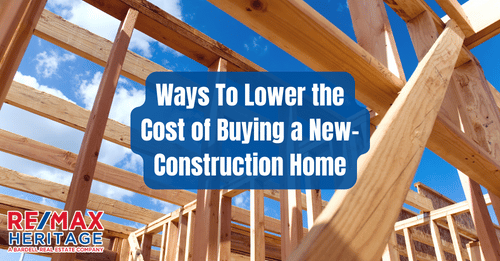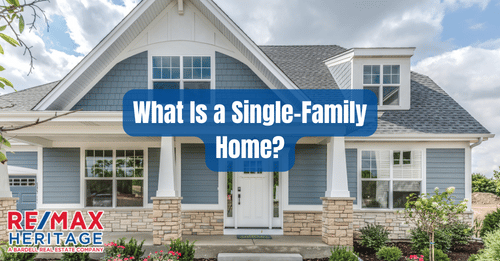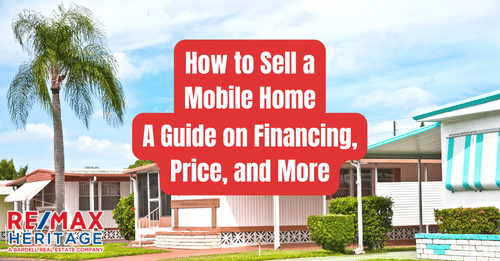
When Is the Best Time to Sell Your House?
When Is the Best Time to Sell Your House?

When Is the Best Time to Sell Your House?
Timing can make a big difference in terms of selling your home quickly and for the most cash. But here’s the thing: The rules on pinpointing that best time might not be what you think.
The assumption that spring is always the best time to sell is not necessarily true. The general direction of your local economy and mortgage interest rates come into play as well.
There’s no crystal ball for reading the housing market, but there are ways to stack the deck in your favor. Here are five things to consider before putting your house on the market.
1. Spring isn’t always the best season to sell your house
Though conventional wisdom maintains that the spring home-buying season (April to June) is the best time to sell, that’s not always the case. In fact, one recent study even found that sellers typically net more above asking price during the months of December, January, February, and March than they do from June through November. Surprised?
One reason may be that the spring home-buying season generally means you’ll have more competition from other home sellers—and that may require you to price your home more aggressively in order to attract buyers.
“Listing in the spring means you are positioning yourself to compete with several other homes,” says Cheyanne Banks. “So as a seller in the spring, you have to price and market your home flawlessly to show buyers that your home is more desirable than the place next door.”
Additionally, a number of experts recommend listing a home in February or March so that the property hits the market before the competition ramps up—which may explain why a 2018 study by ATTOM Data Solutions of 14.7 million home sales from 2011 to 2017 found the second-best day of the year to sell a home is Feb. 15, with sellers netting an average premium of 9% above their house’s estimated market value on that day. (Sellers nab a 9.1% premium above market value on June 28.)
Winter is also a hot time of year for people relocating for jobs, says Jennifer Baldinger.
“One of the biggest months for corporate relocation is January-February, so those buyers who need to move quickly are out in full force looking for new homes,” she says.
2. Keep an eye on the local economy
The strength of the U.S. housing market as a whole certainly plays a role in home prices. According to a realtor.com analysis of annual price growth rates, a home’s value generally increases 3% to 4% a year when the economy is strong, driven by inflation and natural population growth. From 2011 to 2016, the national housing market was recovering from the bubble at a slightly higher speed: 6.3% a year, on average.
You’ll want to assess your local economy’s conditions when figuring out when to list your home. One benchmark you can use is the S&P CoreLogic Case-Shiller National Home Price Index, which monitors single-family home sales in 20 major U.S. cities. Another valuable resource is the Metropolitan Median Area Prices and Affordability tracker from the National Association of Realtors®.
3. Mortgage rates matter, too
Generally, more people buy homes when mortgage rates drop, historic data shows. As a result, prospective sellers should be monitoring the mortgage market, says Jack Guttentag, author of “The Mortgage Encyclopedia.”
4. Wait until your home’s in good shape
To fetch top dollar for your home, the property must show well. This may require you take time to make repairs to your house.
“Any defect or condition that affects the intended function or operation of a major house system should be fixed,” says Kathleen Kuhn, president of HouseMaster, a national chain of home inspection offices.
Translation: Taking care of leaks, built-in appliances not functioning properly, insect infestations, plus any imminent safety or environmental hazards, is crucial before listing your home. Even making cosmetic changes (e.g., repainting the kitchen or sprucing up the property’s landscaping) can make your home significantly more appealing to home buyers.
Keeping up with your neighbors is also important. If all the houses on your block are beautifully furnished and landscaped, then it’s likely worth it to spend the extra cash—and the time—primping your own home for sale.
5. Your personal preparedness is a priority, too
Yet no amount of timing should eclipse what time is right for you—personally, professionally, and otherwise. Are you ready to move on, or up into bigger digs? Though most experts advise you to live in your home at least ten years, there are circumstances where it just makes sense to sell. Many homeowners sell when they change jobs or when their children switch schools, or when the kids fly the coop and the parents are ready to downsize. So, take stock of your own situation when deciding whether to put your house on the market now or wait.
Experts in Residential Real Estate in Orlando
If you are buying or selling real estate it’s quiet often the single most important financial decision you make. For the last 30 years we have helped clients buying and selling property in Orlando and the surrounding areas. Put simply, this means the knowledge and expertise accumulated over this time ensures our clients get the best representation possible.
Our experienced agents will help and guide you through the entire process providing valuable support every step of the way.
Ready to make a Move?
Bardell Real Estate are the experts in helping you with your selling, buying or renting needs near Orlando, Florida. Make your Disney area experience a forever memorable one. Call us now to speak to a real estate agent.
[formlift id=”36911″]





